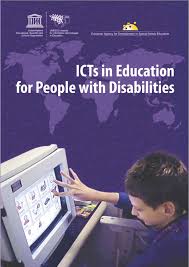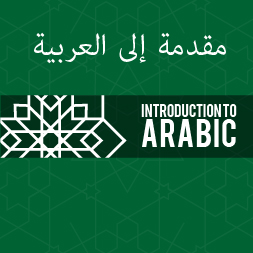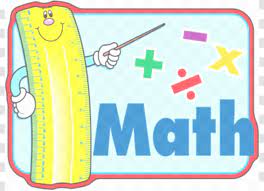READING AND WRITING PROBLEMS AMONG CHILDREN WITH INTELLECTUAL DISABILITIES
₦10,000.00 ₦3,000.00
PROJECT TITLE: READING AND WRITING PROBLEMS AMONG CHILDREN WITH INTELLECTUAL DISABILITIES
PAGES: 57
Contact +2348039692804 for further assistance or writing new topics
Description
CHAPTER ONE
INTRODUCTION
1.1 Background to the Study
Intellectual disabilities in adulthood by definition describe individuals as developmentally disordered in learning in comparison to age-expected performance and appropriate instructional opportunities. A diagnosis requires evidence that an individual is substantially limited in major life activities (e.g., reading or writing). If intellectual disabilities are not diagnosed before adulthood, however, it may be difficult to establish that the individual had access to sufficient high-quality instruction. Social/emotional, cognitive, oral language, and achievement abilities influence individual learning differently across the life span, and the recognition of age-specific markers may be critical to reliable and valid diagnostic decision making appropriate for the adolescent and adult population (Gregg, 2009). Adults can experience a range of intellectual disabilities that are important to diagnose and attend to as part of literacy instruction.
Although better information is needed about the number of adults in literacy programs with intellectual disabilities, over one-quarter of adults who attend adult education programs report having a intellectual disabilities (Tamassia et al., 2007). The prevalence of intellectual disabilities for the college-bound population is reported to be approximately 3 to 5 percent of student enrollment (National Center for Education Statistics, 2009; Wagner et al., 2005). Due to variability in eligibility criteria, the adult population with intellectual disabilities represents a very heterogeneous group of individuals in terms of severity, ability, and background.
Banjo (2019 cited in Unoh (2018) define “Reading as very precious tools to be used in cutting through the unwieldy academic jungle so as to have a clearer view”. To Richard (2012) reading is perceiving a written text in order to understand its contents, this can be done silently. McArthur (2012) seas reading as the processes of extracting meaning from written or printed language, it is one of the four language skills (listening, speaking, reading, writing). The term reading disability is often used interchangeably with the terms dyslexia, reading disorder, and intellectual disabilities in reading. A significant number of college students with intellectual disabilities demonstrate reading underachievement as a result of their disabilities, influencing both their school and work outcomes (Bruck, 1992; Gregg, 2009; Gregg et al., 2002; Shaywitz et al., 2003).
Unoh (2018) stated that reading is essentially a cognitive learning activity that consist of perceiving, processing, interpreting, comprehending and synthesizing information that is conveyed by written or printed language. Obanya (2012) stated that there are both environment and pedagogical reason for young Nigeria Classes Children with intellectual disabilities reading disabilities and poor reading habits. These environmental reasons deals with the use of English in the society and the child’s home (immediate environment) quite a large number of Nigeria children with intellectual disabilities grow up in homes where there are books than the ones prescribed by the schools.
The importance of phonological, orthographic, and morphemic awareness to decoding and accurate word identification has been well documented. The majority of research on decoding in college students with intellectual disabilities pertains to specific reading disabilities (dyslexia). The persistence of phonological, orthographic, and morphemic awareness deficits has been repeatedly documented (Bruck, 1993; Gregg et al., 2002; Hatcher, Snowling, and Griffiths, 2002; Holmes and Castles, 2001). Most of the children are not encouraged by their parents to read and this places such children at a disadvantage because many of them are not exposed to printed materials until they get to school. Very few communities have public libraries where children can read. Public library are established at some local and state headquarters where children do not have access to public library in their community. Most classes children with intellectual disabilities lack fluency in spoken English because English Language is rarely used in their environment and this affect their reading.
This problem is compounded because after the first few years in the classes school. Children begin to receive instruction on a language which they have not fully mastered. Since English Language in Nigerian Schools is both a subject and medium of instruction. A child who has developed a good reading habits has better prospect of, not only being interested on reading widely but is likely to have trained himself to decode meaning from materials read or heard with more precision. There is also a problem of comprehension of what is read in a second language situation since children develop at different rates, if a child is not adequately matured in terms of preparedness for reading.
According to Olaofe (2018), the pedagogical reasons are related to the quality of reading and the level of available teachers in both classes and secondary schools. Inappropriate methods of teaching, reading, lack of libraries where books for reading will be available. The Nigerian classroom of today makes use of common texts, instructional procedure and evaluation methods for all learners regardless of their socio-economic background interest and abilities. In Nigeria the Grade II Teacher Training College of Education have not been sufficiently aware of their rule as a potential teachers on reading and giving appropriate instruction and practice in teaching children to read.
The problem is aggravated because of declined standard of testing and remedial devise specifically meant for reading in Nigerian situation. J. A. Bright (2019) opined that reading is the core of syllabus books provide most student with the situation in which learning takes place where there is little reading there will be little language learning. It is impossible in any classes school to provide direct experience of language used as part of real life in the way native learner get his first language. The children with intellectual disabilities who want to learn English will have to read himself into a knowledge of it and the most substitute imaginary for actual experience. It is only by reading that the student can acquire the speed and the skills. He will need for practical purposes when he leaves school in our literate society, it is hard to imagine any skilled work that does not require the ability to read.
As a result of those environmental and pedagogical factors there is high production of dropouts and semi-literate through the school system. Efficient reading habits from a good parts of the qualities of a good product of education both in recent times, there have been criticism because the product of Nigeria education system are fast falling below social expectation. Oku (1970) said that the majority of present day Nigerians has been brought up in illiterate homes where reading for pleasure is not cultivated.
Phonological awareness or knowledge refers to awareness of individual speech sounds and the ability to associate speech sounds with print (e.g., ability to identify, discriminate, and isolate phonemes for rhyming or repeating and/or manipulating spoken pseudowords). Orthographic awareness is the visual recognition of letter forms and spelling patterns within words. Morphological awareness is the recognition of morphemes (the smallest meaning units in language) and knowledge of word derivations (create, creation, creative, creator).
This study attempts to analyze the reading and writing problems, interests, attitudes of selected group children with intellectual disabilities to identify some pedagogical and environmental factors that have influenced their reading habits and suggest ways of remediation observed problems and inculcating good reading habits in them.
1.2 Statement of the Problem
The basic for academic excellence is effective reading and understanding. This research work will focus on the reading and writing problems s. It will also suggest ways and strategies of solving the problems facing both the teachers and the children with intellectual disabilities s.
1.3 Purpose of Study
The purpose of this research is to examine the root cause of reading and writing problem among the classes children with intellectual disabilities. It will also examine different methods of teaching effective reading among classes children with intellectual disabilities.
In addition, the research work when concluded intends to offer suggestion for improving the teaching of s. The project will encourage classes children with intellectual disabilities to inculcate reading culture for better academic performance.
1.4 Significance of Study
The significance of the study would be seen in the following areas:
- It will help the educational planners to provide classroom apparatus real objects and attractive books for every subjects.
- It will guide the children with intellectual disabilities to read more books at their leisure.
iii. It will enlighten the society to know about the importance of reading in our society.
- It will guide the teacher to use diverse methods to teach children with intellectual disabilities in the school.
1.5 Research Questions
The following research questions have been generated for the study:
- What are the reading and writing problems of children with intellectual disabilities s?
- What are the causes of the reading and writing problems?
- What are the solutions to the reading and writing problems?
1.6 Scope of Study
The study is limited to classes schools in Federal college of education (Special), Oyo, Oyo State, Nigeria.
1.7 Definition of Terms
The following terms are defined in the context of this study:
Reading and writing problems: These are specific difficulties, which a reader habitually experience according to Unoh (2012). Reading and writing problems include word by word reading, vocalization and sub-vocalization, poor visual perception and inflexible reading rate.
Reading Habit: This term is used to refer to a composite of reading interest and attitudes of a reader or a group of related readers, it has to do with reading tendencies with references to both purpose and reading for pleasure, reading difficulties and reading tasks.






Reviews
There are no reviews yet.